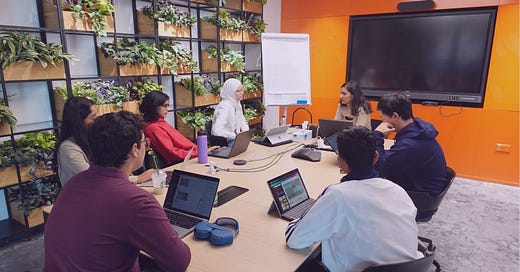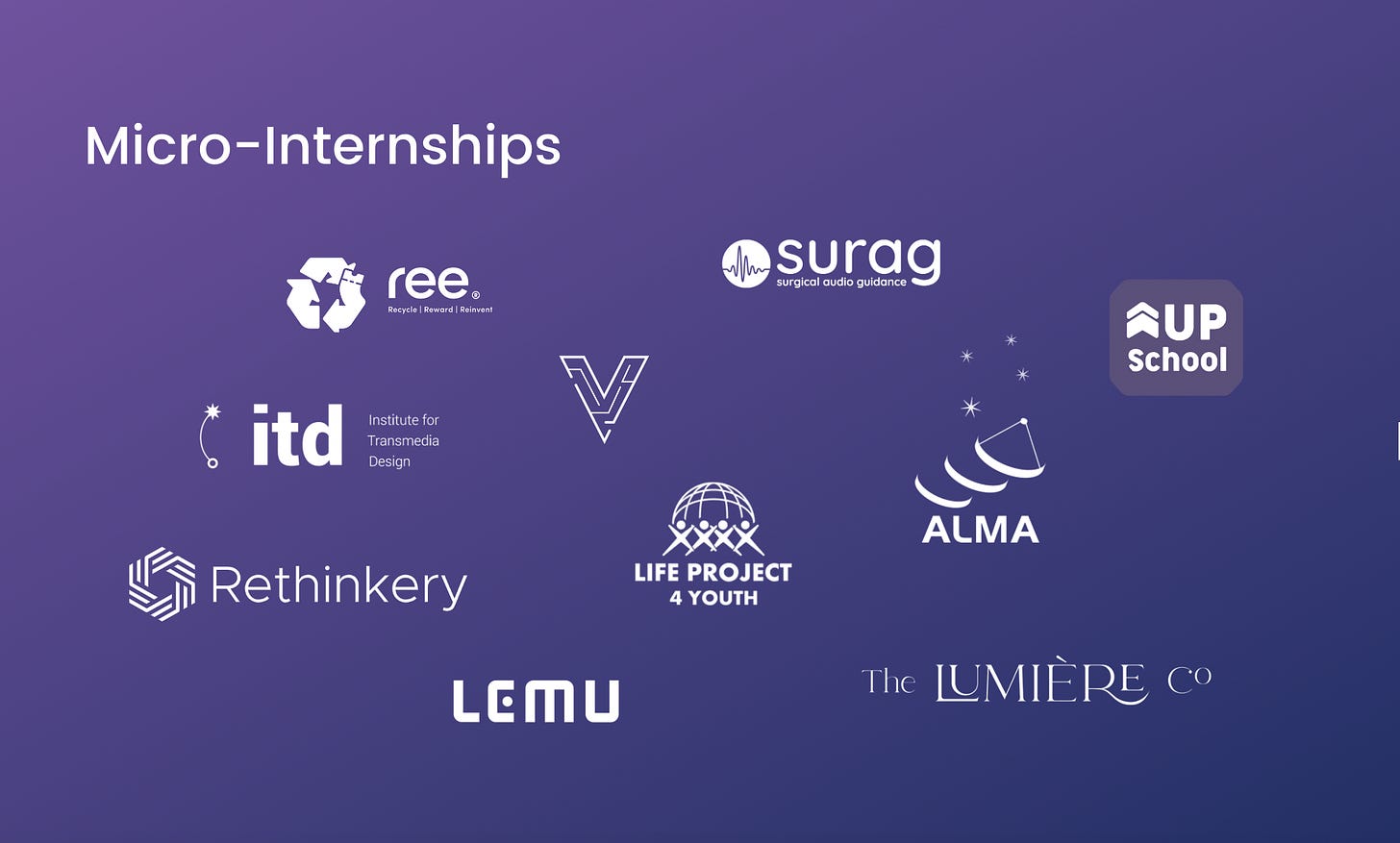How can schools facilitate internships, mentorships, and more real-world learning?
Empowering learners with skills for today's world
According to the US Department of Labor, the average person undergoes career changes between 5 and 7 times throughout their lifetime. One main reason for this change is the constant volatility in the workforce, driven by the rise of emerging technologies that lead to the demise of old industries and the rise of new ones.
However, I propose that another reason behind career transitions is our limited understanding of the realities associated with a particular job or industry until we immerse ourselves in it. No amount of studying or lectures will prepare you for the actual experience of working in the field. Often, we become captivated by a certain career path, influenced by societal narratives or popular culture, only to confront the stark realities that await us.
In today’s world, we continue to ask teenagers to choose what they want to be when they “grow up”, knowing that they simply have not been exposed to enough work experience to know what they truly want. While we must guide young minds to embrace uncertainty about the ever-changing workforce, we also need to create opportunities for exposure to the workforce.
Internships & experiential learning
Undoubtedly, internships hold immense value in enabling skill development, exposure, and confidence. We do, however, wait for way too long to expose our students to them.
Regrettably, even freshmen college students often encounter challenges when seeking internships, as many employers tend to prioritize recruiting older students for such positions. To address this issue, it is important for educational institutions to promote and facilitate internships and work experience for learners at all stages of their academic journey.
How we facilitate internships at School of Humanity
At School of Humanity, we facilitate a micro-internship at the end of every term, for every learner.
The theme of the internship is directly related to the Challenge the learner had decided to embark upon that term, whether it be “Designing Space Habitats” or “Activism through Art”. We collaborate with the organization, which sets a challenge or problem that they are facing for the learner. Our learners collaborate, with the support and guidance of their educators, to tackle that problem and design solutions for the organizations.
Over the last two years, we’ve seen facilitated a range of inspiring internship opportunities with organizations such as:
Ree, United Arab Emirates: Our learners were asked to expand Ree’s recycling efforts in the United Arab Emirates.
Virtue Consultants, United States: our learners conducted a research project into A.I. ethics
Alma Observatory, Chile: our learners designed a game that teaches children astronomy
Surag, United Kingdom: Our learners prepared a report on surgery in the future
Takalam, United Arab Emirates: Our learners developed a marketing strategy to support Takalam’s expansion in the GCC region
In addition to these termly micro-internships, we collaborate with various organizations to set longer-term internships over the summer breaks for our high schoolers. This often requires our educators and school leaders to participate in strategic and meaningful networking throughout the year.
We’ve learned some key lessons…
In the process of facilitating these micro-internships, our team has learned that in order for these experiences to be a success, they have to be:
Embedded into the curriculum and model. This means that they are not extracurricular, but part of the core learning experience. There is time carved out of the school schedule and term for these experiences.
Valuable to the organizations and respectful of their time. It’s important to craft meaningful micro-internship opportunities that provide tangible value to participating organizations and ensure that their time and resources are utilized effectively.
Facilitated with the support of educators: There needs to be an educational experience designed around the internship. Educators are there throughout the journey to guide and mentor learners through the entire journey.
Safeguarded for minors: Implementing appropriate safeguarding policies to protect the well-being and ensure the safety of minors participating in micro-internships is of utmost importance.
The Power of Industry Mentorship
One of the most powerful ways to upskill and learn in a given field is to learn from mentors who are already pioneering in that industry. Mentors can share their knowledge, insights, and lessons learned, helping mentees navigate challenges, make informed decisions, and develop valuable skills. Additionally, good mentorship fosters networking opportunities, enabling mentees to expand their professional connections and access new opportunities.
How we facilitate mentorship at School of Humanity
At our school, Industry Mentorship is embedded into the term on a weekly basis for every learner. Our mentors are scientists, technologists, entrepreneurs, policy-makers, and change-makers who are actively pioneering in their field and wish to pass on their know-how to the next generation. They come from organizations like IBM, Harvard, Singapore Art Council, UAE Space Agency and much more.
During these group mentorship sessions, learners receive guidance on their projects, career aspirations, and intellectual interests. It is a beautiful opportunity to soak up knowledge and insights from someone who has a lifetime of successes and failures.
Mentorship vs Life-coaching
One of the key distinctions I make between mentorship and life coaching is that mentors are specially brought on for their expertise and practical skills in a given domain. They inevitably become a source of inspiration and “coaching” but this is all grounded in real-world experiences and industry expertise.
We’ve learned some key lessons here too….
When recruiting these industry mentors, we not only look for industry expertise but also their ability to connect with learners and pass those insights to others. Some natural teaching and pedagogical instincts are crucial for a meaningful mentorship experience.
Our mentors are vetted, trained, and empowered to inspire the next generation. The experience is also combined with important safeguarding policies.
There is also regular communication between mentors and educators, to ultimately better support the learner. For instance, in our high school, our educators and mentors regularly meet to discuss how they can best support the cohort on their journey.
Learning through exploration
It’s time we started breaking down the silos of what we consider a “school”. Facilitating partnerships and collaborations between education providers and industry is crucial if we are to close the growing skills gap in our world and prove a meaningful learning journey to all.
Exposing young minds to more internships and mentorship from a young age comes from the spirit of enabling exploration. As we do so, it’s crucial that we do not pressure or force the next generation to specialize too early and encourage them to keep an open mind, explore different industries, and above all, embrace uncertainty.







100% agree with all of this especially the mutual value exchange you suggest that is at the heart of sustainable ed<>inudstry partnership. I would love to share notes on how we can improve and socialize this approach across school models and industry partners.
Super interesting. You folks sound like you're actually solving a lot of the problems that the last school I worked at, part of the Big Picture network of public magnet schools here in the US, is ostensibly trying to solve, but failing.